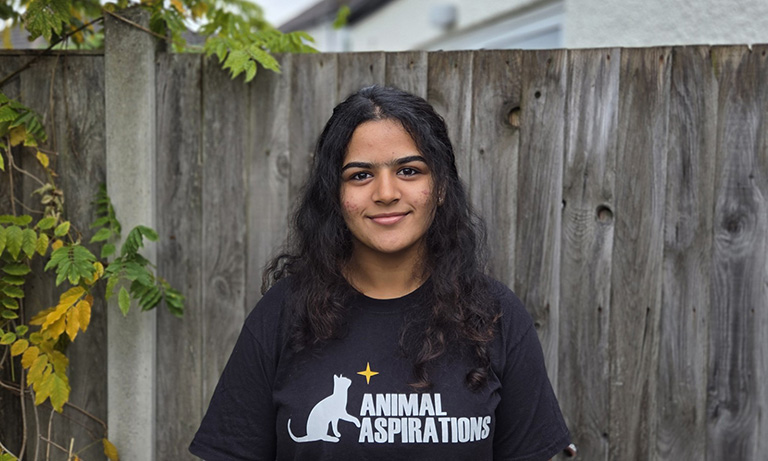The veterinary voice for animal welfare: reflecting on BVA’s updated Animal Welfare Strategy
11 Jul 2025
22 Oct 2025 | Shreevarshini Mandradiar
This Black History Month, Animal Aspirations President Shreevarshini Mandradiar, currently in her third year of veterinary medicine at Royal Veterinary College, explains why representation and access matter in veterinary medicine.

When I first told people in India that I wanted to study veterinary medicine, I was often met with puzzled looks. For many, it wasn’t seen as a prestigious or promising career, because medicine meant human medicine, and veterinary work is misunderstood or undervalued. But for me, it was never about prestige; it was about purpose and passion. I just wanted a life around animals.
I realised how much access shapes opportunity, even before I started university. In India, exposure to any animal related field can be extremely limited: it is so hard to get the work experience and more importantly, the mentorship that you need for getting into universities. Opportunity is not equally distributed between countries and within the country as well: I am so grateful that I had my family’s support to have this opportunity of studying veterinary medicine at the Royal Veterinary College (RVC).
However, even when I came to the UK, I saw a similar pattern play out on a global scale; representation is still limited within the veterinary profession. Walking into a lecture theatre, you sometimes notice immediately that you’re the only person who looks like you, and that proves how rare visibility can be for people from ethnic minorities. And while everyone is welcoming, that absence of representation carries a quiet weight. It shapes how you see yourself, how confident you feel, and how you imagine your place in the profession.
Visibility and representation are so vital; you can’t aspire to be what you can’t see. And that’s why it’s so important to have role models who share your background, in terms of ethnicity, geography, or life experience because it gives you a sense of belonging and validation.
As the current president of Animal Aspirations, that’s a message we strive to turn into action. Founded by veterinary students, Animal Aspirations works to widen participation in veterinary and allied animal professions, particularly for those from underrepresented backgrounds. We want to bridge the gap between aspiration and opportunity.
Access and exposure are the first stepping stones of our mission; we organise workshops, after school clubs and mentorship, because many students from diverse or international backgrounds don’t grow up around farms, animal hospitals, or veterinary mentors. They might not have parents who can drive them to placements or networks that open doors for their education and beyond. By doing this, we show young people that the veterinary world is vast and full of possibilities, be it clinical work, research, policy, public health, animal welfare, agriculture and more.
Black History Month is a time to reflect on how far we’ve come and how far we still have to go. I truly appreciate that the profession has made significant progress in recent years, with organisations like BVA and RCVS making diversity and inclusion a clear priority. But genuine inclusion requires access, visibility and allyship that actively supports the paths of those who have historically found it harder in this profession.
I’ve learnt that diversity isn’t about ticking boxes; it’s about enriching the profession, be it vets, nurses, vet techs, students or anyone who is involved. Different perspectives also help us serve everyone, understand the global nature of animal health and tackle greater problems. Only when each person in this profession feels like they belong will the entire profession become stronger, because making space for every story doesn’t just diversify the profession, it dignifies it.
I truly believe that representation can change lives, access can change futures and together, they can change the face of veterinary medicine.
Get tailored news in your inbox and online, plus access to our journals, resources and support services, join the BVA.
Join Us Today